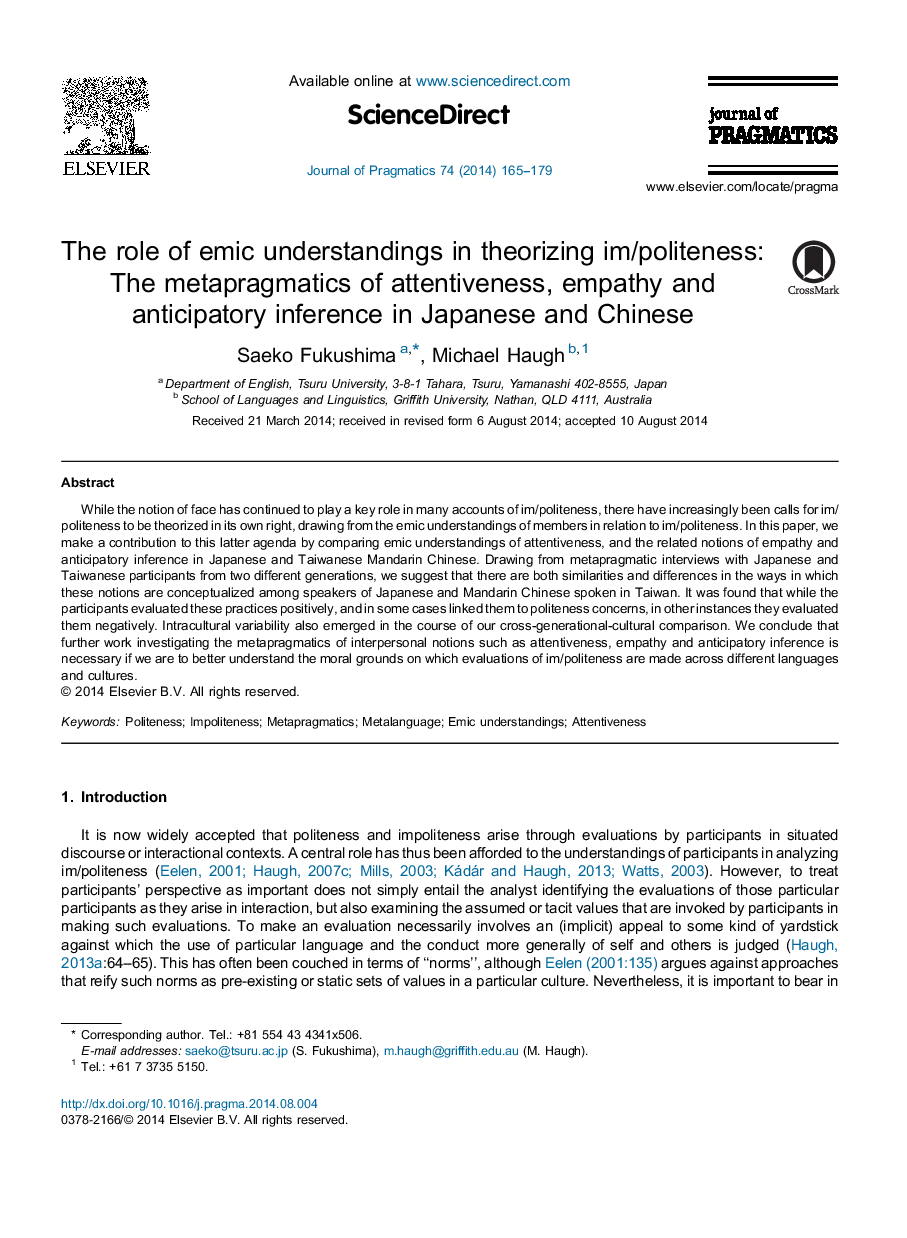| Article ID | Journal | Published Year | Pages | File Type |
|---|---|---|---|---|
| 932665 | Journal of Pragmatics | 2014 | 15 Pages |
•Investigates emic understandings of attentiveness, empathy and anticipatory inference.•Interviewed Japanese and Taiwanese participants to draw out these emic understandings.•Both Japanese and Taiwanese participants evaluated the three concepts investigated positively.•Both Japanese and Taiwanese participants sometimes perceived attentiveness as meddling.
While the notion of face has continued to play a key role in many accounts of im/politeness, there have increasingly been calls for im/politeness to be theorized in its own right, drawing from the emic understandings of members in relation to im/politeness. In this paper, we make a contribution to this latter agenda by comparing emic understandings of attentiveness, and the related notions of empathy and anticipatory inference in Japanese and Taiwanese Mandarin Chinese. Drawing from metapragmatic interviews with Japanese and Taiwanese participants from two different generations, we suggest that there are both similarities and differences in the ways in which these notions are conceptualized among speakers of Japanese and Mandarin Chinese spoken in Taiwan. It was found that while the participants evaluated these practices positively, and in some cases linked them to politeness concerns, in other instances they evaluated them negatively. Intracultural variability also emerged in the course of our cross-generational-cultural comparison. We conclude that further work investigating the metapragmatics of interpersonal notions such as attentiveness, empathy and anticipatory inference is necessary if we are to better understand the moral grounds on which evaluations of im/politeness are made across different languages and cultures.
